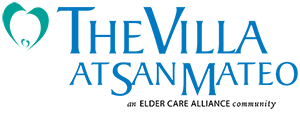Most people are aware that high blood pressure can be dangerous and is a top cause of heart attacks and strokes. But do you know what constitutes healthy blood pressure?
Historically, doctors have considered blood pressure above 140/90 as worrisome, but new guidelines from the American College of Cardiology have changed that standard. Readings over 130/80 now are viewed as the threshold for high blood pressure; earlier treatment and lifestyle changes may help manage the condition and reduce the risk of cardiac events.
The change will affect millions of people who will now need to take steps to treat their high blood pressure. What should you know about the revised guidelines, and what steps can you take if you receive a diagnosis of high blood pressure?
Why Is High Blood Pressure Problematic?
Despite the frequency of high blood pressure among the U.S. population, the condition can have serious consequences. With blood pressure elevated, the heart must work harder to send blood through the body, eventually causing damage to arteries.
Left untreated, the condition can cause stiffening of the arteries and heart, which can lead to strokes, heart attacks and kidney failure. In many cases, people with high blood pressure do not notice symptoms.
Treating High Blood Pressure
No cure exists for high blood pressure, but the condition often can be managed with lifestyle changes and medication. In addition to changing the threshold for high blood pressure, the new guidelines note that some individuals may require two or more medications to control the condition.
If you have high blood pressure, work with your doctor to determine the appropriate treatment plan for you. In addition, consider making some changes to your lifestyle. For example:
- Reduce salt in your diet to 1,500 milligrams or less per day. Just a small reduction can lower your blood pressure by several points.
- Keep your weight at a healthy level. Losing even 10 pounds can help lower blood pressure.
- Don’t smoke, and limit alcohol to less than a daily drink for women and two for men if you’re over age 65. In addition to raising blood pressure, alcohol in excess can interact with blood pressure medicines.
- Lower your stress level. Stress can contribute to high blood pressure; to keep yours in check, make time for relaxation and activities you enjoy.
- Eat a healthy diet and get moving. Regular exercise can lower blood pressure and can keep mild elevation from growing worse. A healthy diet includes fruits, vegetables, whole grains, lean proteins and low-fat dairy.
Seek Help and Support
If you are diagnosed with high blood pressure under the new guidelines, your doctor can help you create a comprehensive program of treatment options and lifestyle changes. Don’t hesitate to speak with friends, loved ones and formal support groups if you need additional education and encouragement.

